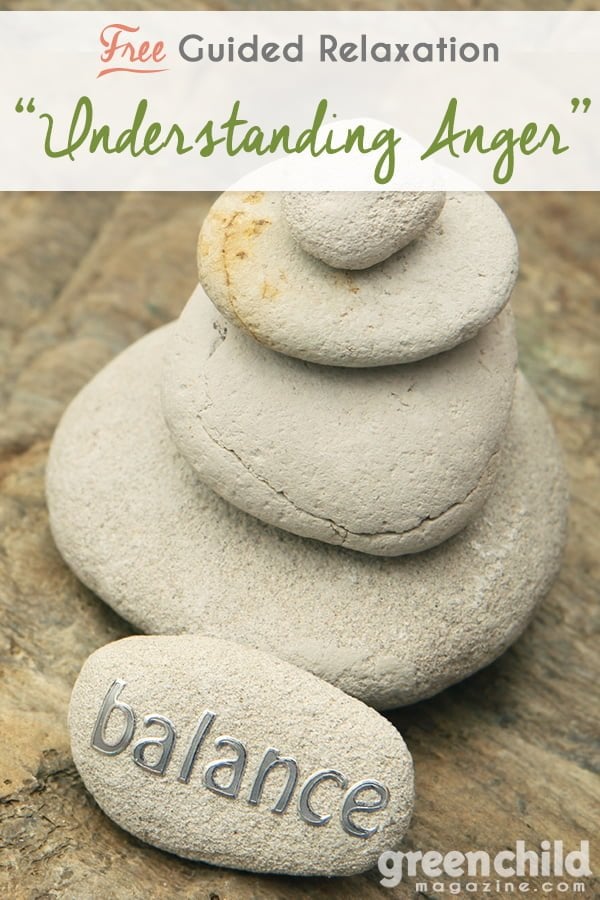Kids’ Guided Relaxation: Pausing to Understand Anger
Children benefit from the use of guided meditation for relaxation and stress relief. You can guide your child to processing through their anger in a healthy way. When you help a child learn how to both feel and release anger at an early age, they’ll develop the lifelong tools for handling emotions positively.

Read this guided meditation for releasing anger in a calm relaxed voice to your child before bed or anytime they need to release emotions or gain relaxation.
These peaceful guided relaxation scripts are written by Mellisa Dormoy of ShambalaKids. Her guided relaxation audios help children and teens relieve stress and anxiety, improve self-esteem, feel fantastic in mind, body and spirit and develop a positive mental attitude at school and at home.
Kids’ Meditation for Anger
Close your eyes now and take in a nice deep breath now and as you slowly exhale, imagine erasing all your thoughts for a moment as if you were erasing words and pictures on the chalkboard.
Slowly see all the thoughts and busyness of the mind fade away. Slowly, very slowly watch the eraser glide over the blackboard. Allow it to relax your mind and body.
Our minds are very fascinating. They will hold onto the thoughts that we focus on the most. When we focus on a thought intensely, or think it over and over, it brings up certain feelings within us. These feelings can be of happiness or excitement, but they can also be thoughts that make us angry, afraid or sad. Feelings are never wrong or bad, and thoughts are simply things our minds think.
Let’s take a moment to talk about anger. Everyone feels anger sometimes. Anger is not bad or wrong but we must be mindful of what we say or do when we are angry. We can be in total control of our emotions, while processing a logical response to the situation. This means we can feel angry about something, but we can still choose to think before we respond to the feeling.
We can think about how our words might affect the person who hears them. We can imagine how our actions will affect another.
It’s good practice to think about our anger before we react to it. We can respond in a way which expresses our anger by choosing our words carefully. We can explain why we are angry to those who care about us and talk it out. Feeling anger doesn’t mean we need to use angry words. We can express our dissatisfaction while still using caring words.
Deep inside, we know that we wouldn’t be angry about something unless we cared about it?
So next time you are feeling angry, notice how the anger feels, and then take a few deep breathes before you respond to that feeling of anger. When you respond, you will have thought about why you felt that way and you can learn to better understand and know yourself. Our feelings can be a gift to us when we take the time to understand why we feel the way we do.
It’s rather magical, isn’t it?
Life is just so full of wonderful experiences and situations that help us know ourselves better, even anger. We can always learn something and improve ourselves thanks to our experiences, which is the true gift!
Life grows with us as we grow. It presents new things, lessons and situations to us each and every day so we can always try to be the best person we possibly can.
Take in a nice, deep breath now and when you’re ready you can open your eyes. You’ve done an amazing job today learning about new ways to deal with feelings and emotions.
Find More Meditation Scripts for Kids
You can get the free printable PDF of this kids’ meditation for anger script and 50+ more guided meditation scripts when you subscribe below.

